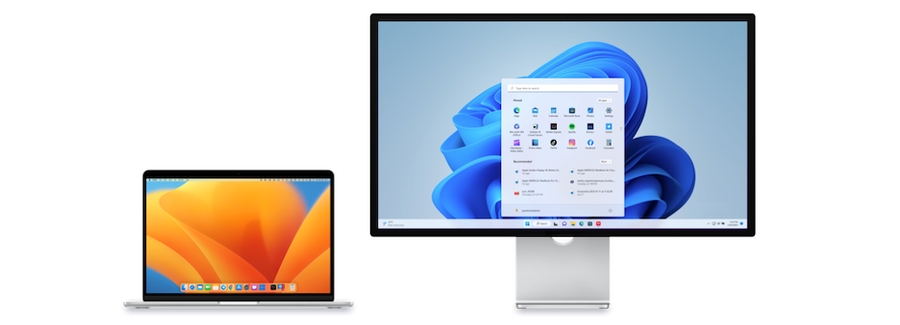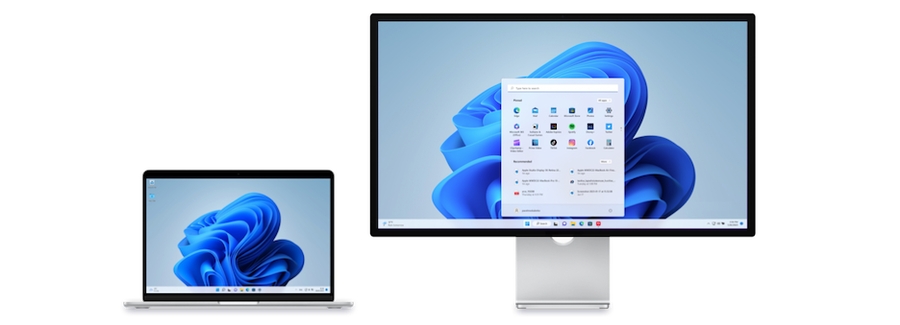Full Screen Settings
In the Full Screen pane, you can configure this view mode-related settings.
To open these settings, choose Actions > Configure > Options, then click Full Screen.

Use all displays in full screen
If you have a second display connected to your Mac, by default, when you switch to Full-Screen mode, Windows is displayed on only one display.
You can choose which display Windows is shown on by dragging its window to that display and then clicking the green Full Screen icon.
To extend Windows across all your displays, select Use all displays in full screen.
Show and hide spaces on all displays simultaneously
If you selected to show your virtual machine on all displays when it switches to Full Screen, you can also choose Show and hide spaces on all displays simultaneously.
With this option selected, when you click the virtual machine on one of your displays, it appears on all other displays. And when you switch focus to something else on one of your displays, virtual machine spaces hide on all other monitors.
Optimize full screen for games
If you use a virtual machine to play video games in Full Screen view mode, select Optimize full screen for games. With this option selected, macOS Dock, menu bar and notifications will not be displayed. To release the mouse input, press Ctrl + Alt.
Use Windows gamma settings
If you're using the virtual machine to play video games, the virtual machine may need to temporarily change your Mac's display gamma setting to properly display different visual effects. To allow the virtual machine to change gamma settings, select Use Windows gamma settings. This option works in the Full Screen view mode only.
Scale to fit screen
Use this menu to configure how the virtual machine is displayed when working in Full Screen:
Off. If Parallels Tools are installed, the virtual machine resolution matches that of the Mac. If Parallels Tools aren't installed, the virtual machine resolution remains unchanged. If it is lower than that of the Mac, the virtual machine is displayed on a black background. If higher, the virtual machine has scroll bars.
Auto. If Parallels Tools are installed, the virtual machine resolution matches that of the Mac. If Parallels Tools aren't installed, the virtual machine resolution remains unchanged. If it is lower than that of the Mac, the virtual machine is displayed on a black background. If higher, the virtual machine is entirely displayed on the screen without any scroll bars.
Keep ratio: No matter whether Parallels Tools are installed or not, the virtual machine resolution remains unchanged. If it is lower than that of the Mac, the virtual machine is displayed on a black background. If higher, the virtual machine is entirely displayed on the screen without any scroll bars.
Stretch: No matter whether Parallels Tools are installed or not, the virtual machine resolution remains unchanged, but the virtual machine is stretched to occupy the whole screen.
Last updated
Was this helpful?

